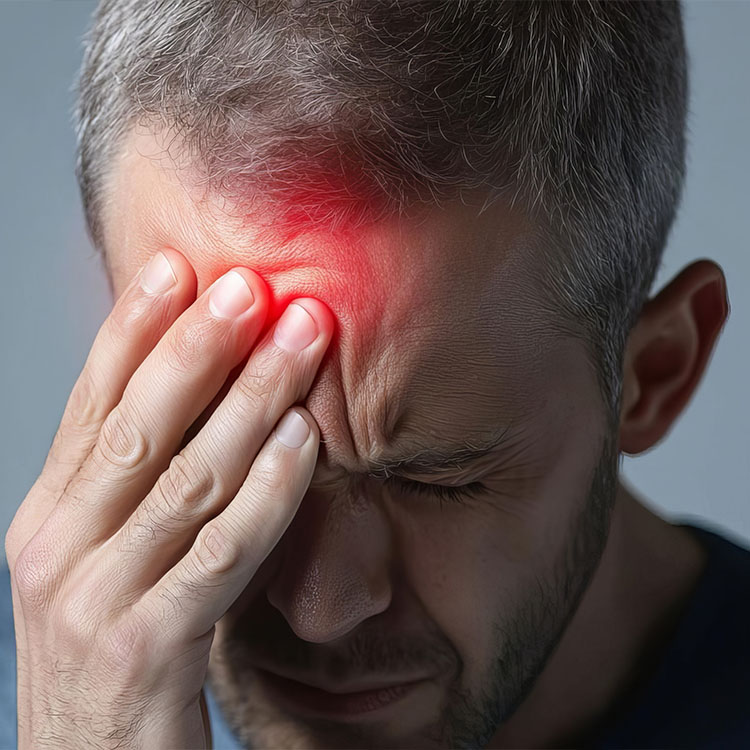Common Types of Acute Headaches
Tension Headache
A tension headache is the most common type of headache that typically occurs in the late afternoon. The pain is usually mild and will go away by the evening and can be increased with bright light or loud noise. These headaches may occur every day.
Migraine Headache
Migraine headaches cause moderate to severe pain that general last from 1 to 3 days. Generally, the pain is only on one side, but it can also change sides, and occurs in the temples, back of the head, or even behind the eyes. A migraine with aura can also occur which means that you may see or feel something before the migraine like small spots surround by zigzag lines.
Cluster Headache
Cluster Headaches are a series of relatively short and sudden, extremely painful headaches that tend to occur every day for weeks and even months. They usually occur in clusters around one eye or on one side of the head.
Causes and Symptoms of Acute Headaches
Headaches can be caused by a variety of factors including combinations of triggers. Some of the most common causes include: Stress or tension, Fatigue, Menstruation, Food, Sudden Decrease in Caffeine Intake, Medical Problems, and a Head Injury.
Managing Symptoms
Apply Heat or Ice – Apply a heat or ice pack to the area that is causing the pain. Both can help decrease the pain and muscle spasms.
Relax – Get in a comfortable position, close your eyes, and relax your muscles. Concentrate on relaxing which means turning off electronic devices and other distractions.
Keep A Record – Write down when your headaches start and stop, where the pain is located, what you were dong when it started, and any other symptoms. Record what you ate or drank 24 hours before the headache. Then, write down what you did to manage your headache and if it helped with the pain.
Preventing Headaches
There are a variety of things you can do to help prevent headaches, but one of the most important things to do is to determine what is causing or triggering them. It may be a cleaning chemical that you use to clean your bathrooms or maybe a certain type of food or even lack of caffeine. In addition to determine your triggers you should also consider the following:
- Do Not Smoke – Nicotine and other chemicals can be a trigger.
- Limit Alcohol (as directed) – Ask you doctor how much is safe for you to consume because alcohol may not only be a trigger it may make the headache worse.
- Exercise (as directed) – Exercise can actually reduce tension and help mitigate if not eliminate headaches. Talk with your doctor to help create an exercise plan.
- Eat Healthy Foods – Fruits, vegetables, fish, and many other healthy meals can help with headaches. Talk with your healthcare provider to help you determine which types of foods will help you manage your headaches and reduce triggers.


